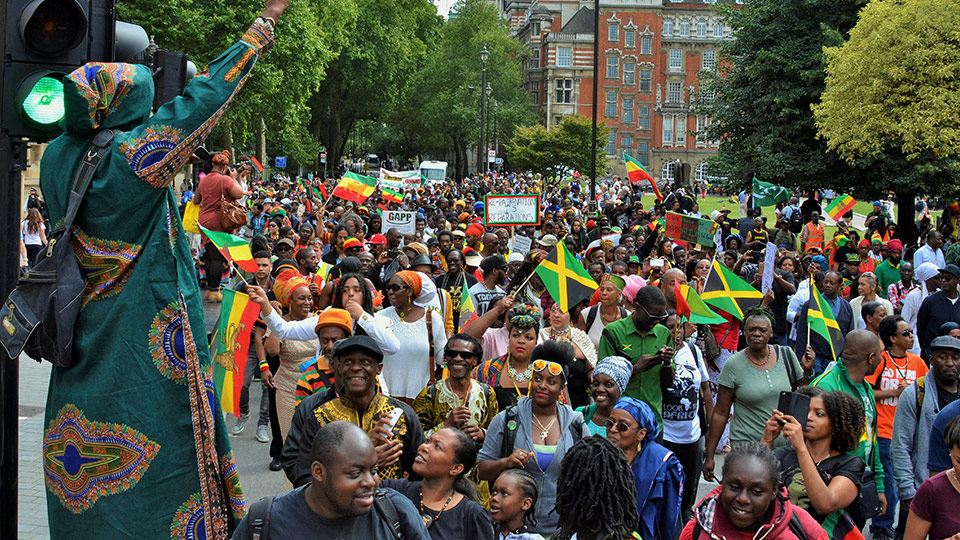MARCH AND PROTEST: Thousands are taking part in this afternoon’s march from south London to west London
TODAY’S RECOGNITION of Emancipation Day (Aug 1) is being marked in the annual tradition with a reparations march from Brixton to Westminster in London.
Speaking at a press conference organised by campaigners, committee member and media officer Brother Dulani explained: “We have to emphasise that the march is not the movement. The march is a part of our struggle as Afrikan people to be heard. It is a part of our struggle to make demands for generations to come to take off where we left off.”
The Afrikan Emancipation Day Reparations March, which attracts thousands every year, is expected to be well-attended with the inclusion of nine organising blocks including the Global African Family block, a student block and an interfaith block.
I want to send out a message to our people of the importance of why you should turn up to this march. We are living in the present, and in the present we have certain privileges we have certain autonomies that people made sacrifices so that we could have those liberties today. They never had that themselves
Campaigners departed from Windrush square at noon today and are expected to arrive at Parliament Square at 2.30pm for a full program and the formal submission of petition
The march is part on an ongoing campaign for reparations to make amends for the generations of slavery that claimed the lives of millions of enslaved Africans who were displaced and robbed of their humanity while being forced to work to support Britain’s booming sugar trade.
Leader, Prophet Kwaku delivered a rousing speech urging for more of Britain’s black residents to become active participants in the campaign and to recognise what he described was their “duty”.
The figurehead said: “I want to send out a message to our people of the importance of why you should turn up to this march. We are living in the present, and in the present we have certain privileges we have certain autonomies that people made sacrifices so that we could have those liberties today. They never had that themselves”.
“The importance of this is to show the Umoja, the unity that we could achieve if we but think similar. We don’t have to think the same, but to think similar and recognise that it could be you that they kill. You the police strangle, you could be Cynthia Jarrett, you could be Cherry Groce, you could be Sean Riggs, you could be Mark Duggan.”
Emancipation Day – a national holiday in many former British colonies in the Caribbean – is the anniversary of the 1833 Slavery Abolition Act, which made slavery illegal in August of 1834.
Kwaku added: “They don’t discriminate whether male or female that they assassinate, you could be those people because the one thing that you cannot hide when you become the chairman of a big company, or the director, or one of these big conglomerate companies that you work for – you can’t change, you will be black tomorrow.
“Youre black today, you’re black when you’re born and you’re going to be black when you’re dead. You can’t change your you.”





